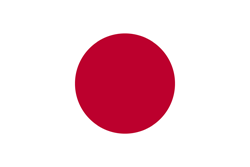Sorry, this entry is only available in JP.
Month: April 2018
Land on capital’s riverfront is opened up for investment
The government has signed off on a proposal to designate more than 9 hectares of land along Phnom Penh’s riverfront as state-private land, opening it up for private investment or long-term leasing.
The 9.25-hectare stretch of riverfront from the capital’s Night Market to the Chroy Changvar bridge was reclassified from state-public land to state-private land last month, according to a royal decree signed by Prime Minister Hun Sen and released in the first quarter of 2018’s royal book.
The royal decree consists of four articles granting the Ministry of Public Works and Transport (MPWT) and the Ministry of Economy and Finance (MEF) responsibility for managing the newly transitioned land.
Officials from both ministries were tight-lipped about why the reclassification was made or what the government planned to do with the space.
MEF spokesman Nup Sothun Vichet declined to comment on Monday and referred questions to the MPWT.
Ken Ratha, deputy director of the MPWT Cabinet, confirmed the content of the royal decree on Monday but said he had no details about the project.
MPWT spokesman Va Simsorya said he could not give out any details about what would happen to the riverfront area and instead repeated the content of the decree.
“In the past it was public-state land, and now it has become private-state land that is open to investment,” he said.
The reclassifying of state-public land to state-private land is a key step toward granting a long-term lease or economic land concession. Roughly the northern half of the designated area is already under the management of the Phnom Penh Autonomous Port (PPAP), a state-run agency, while the southern half is mostly a paved walkway where private riverboats dock. PPAP Director General Hei Bavy could not be reached for comment.
The riverfront real estate would likely fetch between $4,000 and $6,000 per square metre on the open market, according to Chrek Soknim, CEO of real estate firm Century 21 Mekong, making the potential value of the land up to $550 million.
(JP) プノンペンのリバーサイドでの投資が可能に、政府が発表
ABA to build 11 new branch offices
ABA Bank, a member of the National Bank of Canada Group, is planning a new expansion in the kingdom, eyeing to raise 11 new branch offices by the end of this year.
Speaking during the relaunch of the bank’s head office yesterday, Askhat Azhikhanov, ABA’s CEO, said they are aiming to add 11 new branches to its existing 55.
He said the bank’s total assets have reached $1.8 billion, which makes ABA the fourth largest banking institution in Cambodia.
In 2014, the National Bank of Canada acquired 10 percent of ABA’s shares, and in 2016 it became a majority shareholder with a 90 percent stake.
Louis Vachon, president and CEO of National Bank of Canada, who was also present at the event, said both institutions are committed to assisting entrepreneurs and family-owned businesses in Cambodia through innovate digital banking solutions.
“We are investing in Cambodia for the long term,” he said.
“Our two institutions share a common goal: to become engines of social and economic development.
“ABA Bank will continue implementing and supporting local programmes and initiatives, as well as increasing the financial literacy of rural populations, supporting tech innovators and promoting sustainable initiatives related to education and poverty alleviation,” he said.
KHMER TINES

Water taxis chart a new course
The first waterway taxi in Phnom Penh came into service on Friday, carrying people from the northern part of the city south to Takhmao city in Kandal province.
A system to transport agricultural products will shortly follow.
Under the management of the Ministry of Public Works and Transport, three water taxis are in service from 6am to 6pm, docking at six places along the waterway.
The service will be free until the end of July. The ministry says that after July the fare will be 5,400 riel ($1.30) the 25km trip.
Each new boat costs about $200,000, and the ministry planned to use six of them for a full service which was expected to be introduced soon, Transport Minister Sun Chanthol said.
The blue boats all have air conditioners, and can carry about 60 passengers.
“It is a historical for Cambodia to get a boat taxi service,” Mr Chanthol said.
“We launch the boat taxi service today to allow people use the service before Khmer New Year as the government has promised, along with other promises including the railway service from Poipet and Serey Sophorn and the airport railway service.”
The ministry has partnered with PiPay, a mobile payment app in Cambodia, to sell water taxi tickets. There are ticket offices at each stop.
The boat taxis give people an alternative to the city bus service, privately owned tuk-tuks and other vehicles.
Prime Minister Hun Sen on Friday applauded the achievement of setting up water taxis. He said the service would help ease traffic congestion on streets.
Phnom Penh Kong Sominea took the boat taxi service with her friends.
“It is good that the boat taxi service is now available,” Ms Sominea said, adding that she had experienced using the city buses.
“It will be easy to use this public transport service.”
Mr Chanthol said the government planned to expand the service beyond the current route to Saang district and Phnom Penh Autonomous Port in Kean Svay district in Kandal province.
“If demand for the boat taxi service increases, the ministry will build more stops in Saang district and Koh Thom and in Phnom Penh Autonomous Port,” he said.
The ministry also has a plan to build a port along the Mekong River for agricultural product transport soon after a feasibility study by the Korean International Cooperation Agency.
A port for agricultural products will be built in Kampong Cham province’s Tonle Bet, Mr Chanthol said.
The project was based on studies by KOICA of the waterway from Phnom Penh to the northeastern Kratie province.
However, Mr Chanthol could not say what the estimated budget for the project would be.
Kim Saroeun, of Kampong Cham provincial agricultural department, said that the project would meet the demands of farmers and agricultural traders in the province who wished to see lower transport costs.
“If the project goes ahead, it will be in response to the wishes of farmers and agricultural product traders because the cost of transporting agricultural products from one place to other is high,” Mr Saroeun said. “When there is a port for agricultural products, it will also become a hub for agricultural products. Especially, it will encourage farmers.”
Mr Saroeun said vegetables, fruit and meat produced in Kampong Cham province were mostly sent to Phnom Penh, Siem Reap and a few other provinces. Agro-industry products – cassava and rubber – were mostly sold to Vietnam.
KHMER TIMES

(JP) プノンペン初の水上タクシーが運行開始
Visa puts its cards on the table
Visa, the global payment company, aims to expand its electronic payments in Cambodia, seeing the country’s economic growth as a chance to expand.
Sean Preston, Visa’s country manager for Vietnam, Cambodia and Laos, set out the investment expansion plan at a meeting with Economy and Finance Minister Aun Pornmonirath last week.
“Visa has been cooperating with local banks to use Visa credit and debit cards, aiming to expand more business in the country,” Mr Preston said.
“Due to the economic growth in Cambodia in consecutive years, Visa card usage rose by 65 percent in 2017.”
He said he expected Visa use to keep increasing this year.
“Visa also aims to cooperate with the Ministry of Economy and Finance to study the feasibility of tax payment or other revenues via an electronic payment system, which will give another use in the future,” Mr Preston said.
Mr Pornmonirath welcomed electronic payment for income collection and any feasibility study.
Electronic payments were important for the economy to be effective and for financial inclusiveness.
“Nowadays in terms of attracting foreign investments and encouraging and protecting foreign investments, Cambodia had been implementing a ‘Friendly Business Environment’ policy,” he said.
“Implementing this will give more encouragement to foreign investors with confidence in Cambodia.”
Visa announced in September last year its credit and debit cards were accepted at Angkor Wat, one of world’s most popular tourist destinations, to drive tourism and increase the shift from cash to electronic payments in Cambodia.
Visitors to Cambodia can use their Visa cards at more than 7,000 merchant locations and more than 1,000 ATMs across the country.
KHNER TIMES

Railway line to Phnom Penh airport launched
The railway line connecting the Phnom Penh train station to the airport was launched on Tuesday morning in a bid to ease traffic flow.
Sun Chanthol, Minister of Public Works and Transportation, said on Tuesday that the train service would make it convenient for passengers to bypass much traffic.
“The airport railway service will help passengers to skip the busy traffic on the road from the city to the airport,” Mr Chanthol said.
The train service is free for passengers living within the vicinity of the Phnom Penh International Airport from this month till July.
The train will use three train engines imported from Mexico for passenger transport, with each train able to carry 100 passengers.
Full service will be ready in June, Mr Chanthol said.
KHMER TIMES









